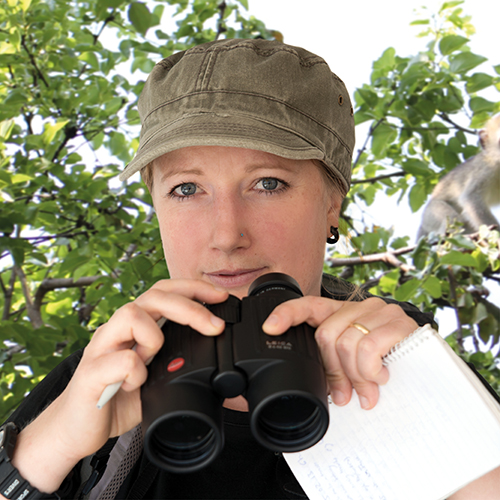
Erica van de Waal shows a sex difference in the social learning preferences of monkeys
18.09.2018 14:00
African vervet monkeys are picky when it comes to deciding who in their group they should learn a new foraging habit from. The decision depends on an interplay between as many as three different things – the sex of the learner, the sex of who they are watching, and the foraging success of that individual. This is shown by a new study, co-led by Branco Weiss Fellow Erica van de Waal and published in the journal Current Biology. Involved were researchers of the University of Lausanne as well as colleagues from the Universities of Zurich and St Andrews.
The monkeys were challenged to open an artificial fruit at either its black end or white end, to extract a piece of apple. A previous study by Dr van de Waal had suggested that the monkeys in the group tended to copy the demonstrated method, but only when the first knowledgeable monkey was a female. Now, the researchers used a remote controller to ensure that males got five times more food than did the females.
The new study revealed a sex difference in the monkeys’ social learning preferences. While males now showed a significant tendency to copy the successful males rather than the usual preference to copy females, the females in the group stuck to copying the female demonstrator, despite her relatively lower success. This was not about the best demonstrators to copy, but who was doing the copying.
“We suspect that for females what is important is maintaining close and strong bonds with the other females in their group they’ve lived with all their lives” explains Erica van de Waal, “they may be less disposed to copy males, who are immigrants unlikely to have an efficient local feeding behavior”. Males, on the other side, must integrate into a new group. So, they adopt the most efficient strategy to learn from others depending on the situation they find themselves in.
Read the news on the website of The Telegraph
Read the news on the website of The London Economic
Read the news on the Swissinfo website (in French)
Read the news on the Blick website (in German)
Read the paper in Current Biology
